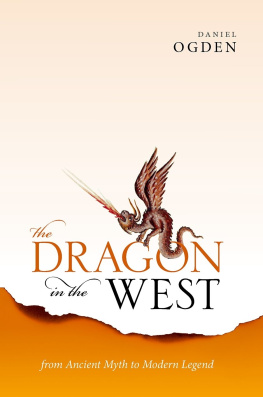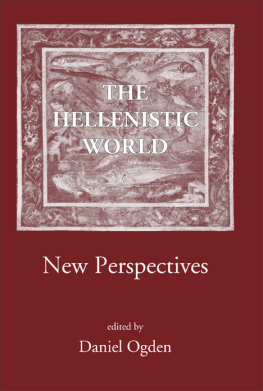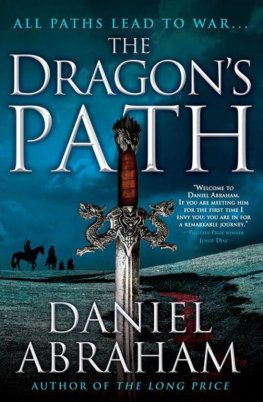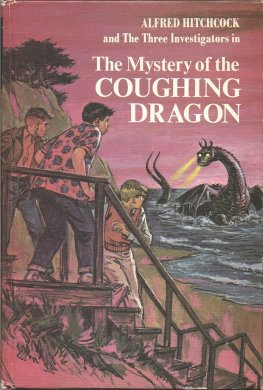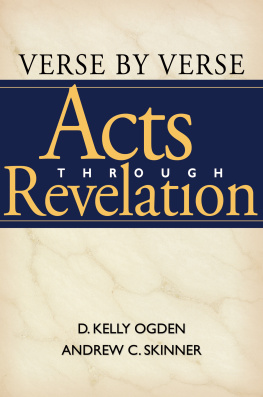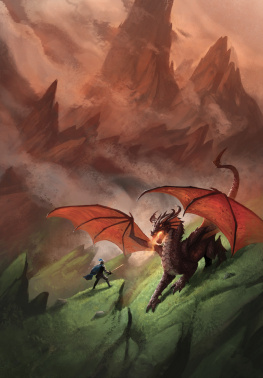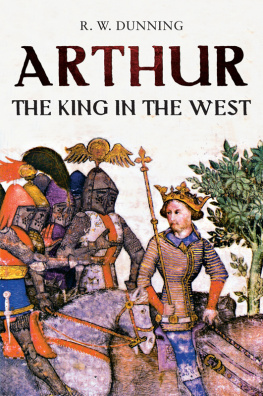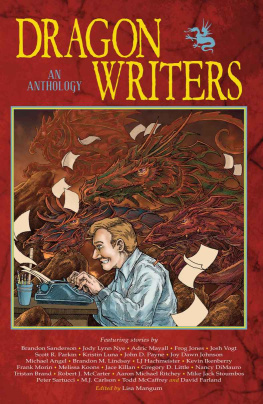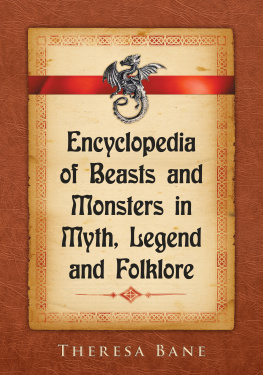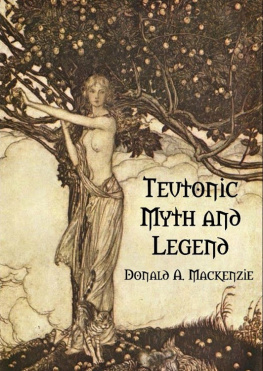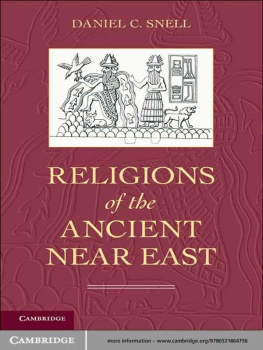Daniel Ogden - The Dragon in the West: From Ancient Myth to Modern Legend
Here you can read online Daniel Ogden - The Dragon in the West: From Ancient Myth to Modern Legend full text of the book (entire story) in english for free. Download pdf and epub, get meaning, cover and reviews about this ebook. year: 2021, publisher: OUP Oxford, genre: Detective and thriller. Description of the work, (preface) as well as reviews are available. Best literature library LitArk.com created for fans of good reading and offers a wide selection of genres:
Romance novel
Science fiction
Adventure
Detective
Science
History
Home and family
Prose
Art
Politics
Computer
Non-fiction
Religion
Business
Children
Humor
Choose a favorite category and find really read worthwhile books. Enjoy immersion in the world of imagination, feel the emotions of the characters or learn something new for yourself, make an fascinating discovery.
- Book:The Dragon in the West: From Ancient Myth to Modern Legend
- Author:
- Publisher:OUP Oxford
- Genre:
- Year:2021
- Rating:3 / 5
- Favourites:Add to favourites
- Your mark:
- 60
- 1
- 2
- 3
- 4
- 5
The Dragon in the West: From Ancient Myth to Modern Legend: summary, description and annotation
We offer to read an annotation, description, summary or preface (depends on what the author of the book "The Dragon in the West: From Ancient Myth to Modern Legend" wrote himself). If you haven't found the necessary information about the book — write in the comments, we will try to find it.
The Dragon in the West: From Ancient Myth to Modern Legend — read online for free the complete book (whole text) full work
Below is the text of the book, divided by pages. System saving the place of the last page read, allows you to conveniently read the book "The Dragon in the West: From Ancient Myth to Modern Legend" online for free, without having to search again every time where you left off. Put a bookmark, and you can go to the page where you finished reading at any time.
Font size:
Interval:
Bookmark:


Great Clarendon Street, Oxford, OX2 6DP, United Kingdom
Oxford University Press is a department of the University of Oxford. It furthers the Universitys objective of excellence in research, scholarship, and education by publishing worldwide. Oxford is a registered trade mark of Oxford University Press in the UK and in certain other countries
Daniel Ogden 2021
The moral rights of the author have been asserted
First Edition published in 2021
Impression: 1
All rights reserved. No part of this publication may be reproduced, stored in a retrieval system, or transmitted, in any form or by any means, without the prior permission in writing of Oxford University Press, or as expressly permitted by law, by licence or under terms agreed with the appropriate reprographics rights organization. Enquiries concerning reproduction outside the scope of the above should be sent to the Rights Department, Oxford University Press, at the address above
You must not circulate this work in any other form and you must impose this same condition on any acquirer
Published in the United States of America by Oxford University Press
198 Madison Avenue, New York, NY 10016, United States of America
British Library Cataloguing in Publication Data
Data available
Library of Congress Control Number: 2021933413
ISBN 9780198830184
ebook ISBN 9780192565877
Printed and bound by
CPI Group (UK) Ltd, Croydon, CR0 4YY
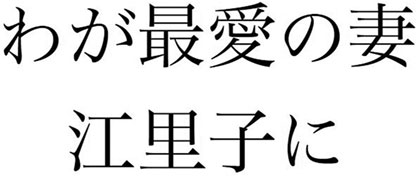
This book has two principal catalysts: first, an inspirational conference devoted to the dragon in comparative perspective organized by Joseph Nagy (now of Harvard) at UCLA in 2015; and, second, the suggestion of Charlotte Loveridge at the Press that I turn my thoughts from an augmented edition of Drakn to a new volume instead. A number of scholars have been generous with references and support, not least Barbara Borg (Exeter), Joanna Bowring (Librarian of Exeter College, Oxford), Rolf Bremmer (Leiden), Christian Djurslev (Aarhus), Debbie Felton (Massachusetts at Amherst), Rui Carlos Fonseca (Lisbon), David Horrell (Exeter), Levente Nagy (Pcs), Daniel Riao Rufilanchas (Universidad Autnoma de Madrid), Gina Salapata (Massey), and, above all, Jan Bremmer (Groningen). My PhD student Ryan Denson has been an inexhaustible source of citations on sea-monsters, hippocamps, and allied creatures: the profound thanks offered here replaces countless local expressions of gratitude in the footnotes. The Exeter Inter-Library Loans librarians have fought indefatigably to retrieve the most recalcitrant items for me. Once again, I salute the OUP editorial team: in addition to Ms Loveridge, Karen Raith and Georgina Leighton.
Iidabashi, 2020
Appendices
Acta Sanctorum 16431940
Pritchard 1969
Aufstieg und Niedergang der rmischen Welt 1972
Uther 2004
Corpus inscriptionum Latinarum 1863
Leutsch and Schneidewin 183951
Halkin 1957
Bibliotheca Hagiographica Latina 18981901
Peeters 1910
Worthington 2012
Herdner 1963
Laroche 1971
Ogden 2013b
The Dragon in the West (this volume)
LiDonnici 1995
Jacoby et al. 1923
Keil and Heinrich 185780
Inscriptiones Graecae 1903
Inscriptiones Graecae ad res Romanas pertinentes 190627
Kassel and Austin 19832001
Dietrich et al. 1995
Kirschbaum et al. 1968
Kahil et al. 198199
Monumenta Germaniae historica 1826
New English Bible 1961
Migne 18571904
Preisendanz and Henrichs 19734
Migne 18841904
Reallexikon fr Antike und Christentum 1950
Pauly, Wissowa, and Kroll 1893
Supplementum Epigraphicum Graecum 1923
Jordan 1985
Thesaurus linguae Graecae (online resource)
Snell et al. 19712004
Texte aus der Umwelt des Alten Testaments
As usual, I have leaned towards Latinization in the rendering of Greek names, the friendlier way to handle them in English. I give titles of ancient works in English when they are more familiar in that form, or when it is helpful to do so. Following convention, Old Norse names have been rendered more accessible, other than in the titles of works as specified in the footnotes. With limited exceptions, the following principles are adopted: lengthening acutes are omitted; is modernized to ; is printed as th; as d. I confess to little consistency in the retention and omission of the inflectional -r, preferring Sigurd to Sigurdr and Ragnar to Ragnarr but Valr to Val. Our dragons are sometimes it and sometimes he (occasionally she); it usefully distinguishes the creatures from their human antagonists in blizzards of fast-moving pronouns, but when a dragon is given a name or otherwise strongly personalized he becomes unavoidable.
Wer ht mich guoter f getan? What good person has opened me? No matter: all of us in the modern West have a strong and clear idea of what a dragon looks like and of the sorts of stories it inhabits. One does not have to be a particular devotee of the fantasies of J. R. R. Tolkien, J. K. Rowling, or George R. R. Martin to do so. In physical form dragons are broadly serpentine, but have animalian heads, thick central bodies, wings, and clawed legs (as illustrated, for example in ). In their stories they live in caves, lie on treasure, maraud, and burn; they are extraordinarily powerful, but even so ultimately worsted in their battles with humans. Despite the inestimable success of this physical form and of this broad story-type, there is nothing obvious, inevitable, or natural about them. Rather, both are complex and artificial constructs. Where do they come from?
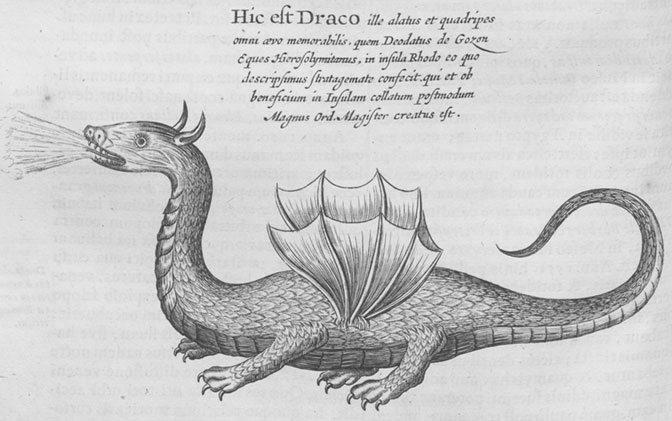
Fig. 0.1 Winged, four-legged dragon. German, engraving, Athanasius Kircher: Kircher 1678: ii.96. Cornell University Library. Public domain (Artstor).
The object of this book is to answer these questions. In 2013 I published two substantial volumes on the dragon of the Greek and Roman worlds, Drakn (2013a) and Dragons, Serpents, and Slayers (2013b), in which I offered an account of its physical formin essence just that of a massive snake, a great worm, albeit many qualifications are neededas well as of the story-types and of the motifs in which it was engaged in that era. Since the appearance of those publications I have come to wonder about the joining of the dots. How did we get from there to here, to the modern notions of dragondom? I was frustrated by the fact that there existed no serious or systematic attempt, in any language, to follow this path and address this question, of such foundational importance and self-evident interest. And so it has been that, not for the first time, I have attempted to create myself the book I longed to read but could not find. My training and experience in scholarship is almost exclusively in the field of Greek and Latin Classics, and it is with some trepidation that I venture so deeply into the full chronological span of the hagiographical tradition, and it is with even greater trepidation that I venture into the world of Old Norse and Medieval Germanic literature. I trespass in these fields not in a spirit of arrogance but one of despair: if no one else will attempt the book the world awaits, it falls to me to do so. If the inadequacies and infelicities of my account provoke the practiced experts of those fields at last to tell the story properly, with greater authority, closer accuracy, finer sensitivity, and subtler nuance than I have been able to do myself, then this volume may yet provide a worthwhile service after all, in the greater scheme of things: material to burn.
Font size:
Interval:
Bookmark:
Similar books «The Dragon in the West: From Ancient Myth to Modern Legend»
Look at similar books to The Dragon in the West: From Ancient Myth to Modern Legend. We have selected literature similar in name and meaning in the hope of providing readers with more options to find new, interesting, not yet read works.
Discussion, reviews of the book The Dragon in the West: From Ancient Myth to Modern Legend and just readers' own opinions. Leave your comments, write what you think about the work, its meaning or the main characters. Specify what exactly you liked and what you didn't like, and why you think so.

